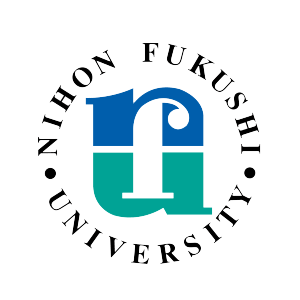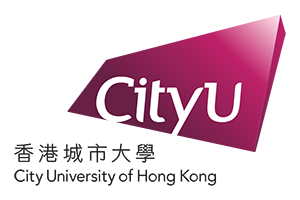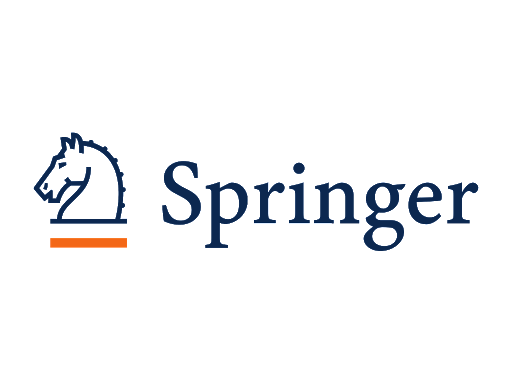Paper Submission Deadline:
31 January 2021
28 February 2021 (extended)
14 March 2021 (final)
10 – 13 August 2021 | Tokai, Nagoya, Japan Online
ICBL 2021 Keynote
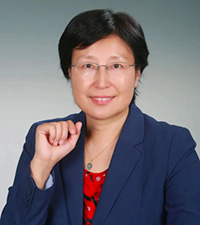
Prof. Wenge Guo
Peking University, China
Dr. Wenge Guo is an Associate Professor, Department of Educational Technology, Graduate School of Education, Peking University, where she served as the chair of the department during 2004 to 2009, and is the founding chair of the Digital Reading Laboratory. She has been a visiting scholar of the State University of New York at Albany, Chinese University of Hong Kong, and Free University of Berlin. Her research focus is the areas of the history of media technology and education, online education, policy analysis of the China online higher education, and digital literacy.
Dr. Guo earned a bachelor degree in computer software; master’s degree in remote science and cartography, and Ph.D. of education. Her publications include 1 monograph, and over 50 papers in Chinese and English. Her researches won several excellent academic awards in China. She is an excellent Chinese scholar of NCET in 2011.
Dr. Guo coordinated the project, Peking University Online Training Course of Educational Technology for K12 Teachers, which was enrolled by more than 470,000 K12 teachers during 2007 to 2013. She initiated the Digital Reading Online courses for students of 3 high schools in Suzhou, Jiaxing, and Beijing. The courses was ranked as one of the six cases of China's New Curriculum list by China Teachers' Daily in 2016.
Seeing the Future of Education: A Three-Year Experiment of Digital Reading Online Course
The history of the evolution of education and media technology from oral to Internet shows that literacy has developed from the oracy, via the print-based literacy, to the digital literacy. In the ecosystem of Internet, the form of reading materials is changing from printed books to digital multimedia contents, including e-books, video, audio, VR, games, etc. Todays, the form of teaching is changing from face-to-face classroom to online classroom mediated by ICT. The change of teaching methods has further brought about a new paradigm of educational research. Based on this background, the Digital Reading Laboratory in the Graduate School of Education, Peking University conducted an experiment on online digital reading courses during 2015 to 2018 in cooperation with three middle schools. This paper will describe this experiment and report the findings.

Prof. Jimmy Ho Man Lee
The Chinese University of Hong Kong, Hong Kong, China
Jimmy Lee obtained both his BMath (Hons) and MMath degrees at the University of Waterloo, and completed his doctoral studies at the University of Victoria. Upon graduation, he joined The Chinese University of Hong Kong (CUHK), where he is now Associate Dean (Education) in the Faculty of Engineering and Professor in the Department of Computer Science and Engineering. His research interests lie in Artificial Intelligence in general and the theory and practice of Constraint Satisfaction and Optimization in particular. His work entails applications in scheduling, resource allocation, and combinatorial problems. He is also an amateur researcher in learning science and technology, focusing on the design of learning platforms and pedagogies for enhancing students' learning experience. During 2017-18, Jimmy joined hands with Peter Stuckey (then) at the University of Melbourne to launch a series of MOOCs on Coursera in both Chinese and English on modeling and solving discrete optimization problems using the Fantasy-based Learning approach, and received good feedback from the learners' community. Jimmy is a two-time recipient (2004 and 2015) of the CUHK Vice-Chancellor’s Exemplary Teaching Award and was bestowed in 2017 the CUHK University Education Award, the highest honour in education at CUHK.
From MOOC to SPOC: Fable-based Learning
This presentation gives the pedagogical innovations and experience of the co-development of three MOOCs on the subject of "Modeling and Solving Discrete Optimization Problems'' by The Chinese University of Hong Kong and the University of Melbourne. In a nutshell, the MOOCs feature the Fable-Based Learning approach, which is a form of problem-based learning encapsulated in a coherent story plot. Each lecture video begins with an animation that tells a story based on a classic novel. The protagonists of the story encounter a problem requiring technical assistance from the two professors from modern time via a magical tablet granted to them by a fairy god. The new pedagogy aims at increasing learners' motivation and interests as well as situating the learners in a coherent learning context. In addition to scriptwriting, animation production and embedding the teaching materials in the story plot, another challenge of the project is the remote distance between the two institutions as well as the need to produce all teaching materials in both (Mandarin) Chinese and English to cater for different geographic learning needs. The MOOCs have been running recurrently on Coursera since 2017. We present learner statistics and feedback, and discuss our experience with and preliminary observations of adopting the online materials in a Flipped Classroom setting.

Prof. Lisa Yekyung Lee
Sogang University, Seoul, Korea
Dr. Lee obtained her bachelor’s and master’s degree at Seoul National University and completed her doctoral studies at Purdue University with a major in educational technology. After briefly working as a senior researcher at the Center for Human Resource Development at SNU, she joined Sogang University as faculty member of Sogang Graduate School of Education. She is a member of the Presidential Committee of the 4th Industrial Revolution in Korea and recommends plans and policies for the future of education in Korea. She is also committee member of the Korean Society for Educational Technology and Korean Association for Educational Information & Media. Her research interests include instructional methods based on social psychology, instructional design for developing thinking skills, and integrating technology for student centered learning.
The Meaning of Learner Centeredness in Higher Education Revisited
This keynote addresses the meaning of ‘learner centered’ education at a time when university students and educators all over the world are (or have been) inevitably thrust into, due to the Covid-19 pandemic. Going online for months surely tests the ability of educators to deliver student centered and interactive learning in a challenging environment. Learner centeredness, in general, implies learning in which the learner’s responsibilities and activities are emphasized compared to that of the instructor. This does not mean that the educator’s role is weakened. Professors must be active in providing feedback about misconceptions and confusions to help students grow into experts. They should also clarify the relation between class projects with the course objectives and the real world, and help students with low competence develop strategies when solving open-ended problems. Students want to think like an expert and apply their skills for solving real world problems. They also desire academic growth by modelling deep insight from their professors. The educator’s role for providing meaningful guidance has become more critical than ever especially for first or second year students who may need much scaffolding for their intellectual development. However, when online classes are carried out for a prolonged time, students’ self-regulation subsides, and the yearn for ‘togetherness’ rises, making it difficult to maintain learner centeredness. Specific examples and their underlying principles of the support provided to students and educators for overcoming their difficulties in 2020 will be discussed in the presentation.

Prof. Katsuaki Suzuki
Director & Professor, Research Center for Instructional Systems, Kumamoto University, Japan
President, Japan Society for Educational Technology, 2016-2020
After graduating from International Christian University in Tokyo, Dr. Suzuki went to Florida State University, where he was awarded Ph.D in Instructional Systems in 1985. He has worked at a private and a public university in Japan before he joined Kumamoto University to start an online Graduate School of Instructional Systems in 2006. He is currently a fellow of International Board of Directors for Training, Performance, and Instruction (ibstpi), an honorary member of e-Learning Consortium Japan, as well as on advisory board for School of e-Education, Hamdan Bin Mohammed Smart University, UAE, and a consulting editor of Educational Technology Research and Development, published by the Association for Educational Communications & Technology, USA. He has supervised translation of 6 books into Japanese, written and edited more than 20 books and book chapters, including Online Learner Competencies: Knowledge, Skills, and Attitudes for Successful Learning in Online Settings.
From Nine Events of Instruction to the First Principles of Instruction: Transformation of Learning Architecture for Society 5.0
This keynote addresses a needed shift in designing learning architecture for transforming education to meet the needs of Society 5.0, Super Smart Society. The 9 events of instruction, a traditional instructional design theory proposed in the 1970's by Robert M. Gagne, will be reviewed as the framework for facilitating human learning based on information processing theory. It will then be compared with a more recent framework of the First Principles of Instruction, proposed by M. David Merrill in 2002, reflecting various theories and models proposed based on constructivist psychology. Similarities and differences will be discussed to suggest how to utilize them as an architectural framework for blended learning design toward a more learner-centered self-directed learning environment.
ICBL 2021 Panel Session Chairs

Prof. Horace H.S. Ip (Chair)
City University of Hong Kong, Hong Kong, China
Prof. Ip is the Vice-president in Student Affairs and a Chair Professor of Computer Science at City University of Hong Kong. He has a BSc in Applied Physics and PhD in Image Processing from University College, London, United Kingdom. His research interests include multimedia content analysis and retrieval, and virtual reality for education. Professor Ip's research has won many awards including Prix Ars Electronica, and a Gold Medal of the Geneva Salon International Des Inventions. He has published over 300 papers in international journals and conference proceedings. Prof. Ip is a Fellow of the Hong Kong Institution of Engineers (HKIE), a Fellow of the UK Institution of Engineering and Technology (IET), a Fellow of the British Computer Society (BCS) and a Fellow of the International Association for Pattern Recognition (IAPR).
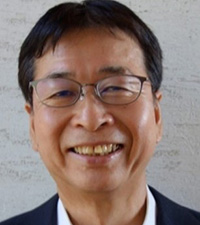
Prof. Kenichi Kubota (Co-chair)
Kansai University, Osaka, Japan
Professor Kubota is a Professor Emeritus at the Kansai University in Osaka, Japan. He received Ph.D. degree in Instructional Systems Technology from Indiana University in 1991. His research specialties include the design of learning environments using Web 2.0, participatory international development, communication in development, and educational technology. Professor Kubota has been actively organizing international collaborations on ICT education: “E-learning junior high schools in Latin America” with Peru and Costa Rica; “Fieldwork project with ICT educators” with Niger and Burkina Faso; “ICT education survey” with Australia; “Building the infrastructure of ICT” with the Philippines; “Improvement of the school curriculum for elementary schools” with Syria, among others. Professor Kubota is the former president of the Japan Association for Educational Media Study and a former trustee of the Japan Society for Educational Technology.
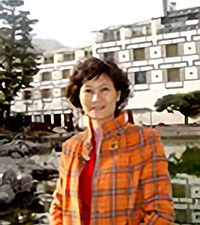
Prof. Youru Xie (Co-chair)
South China Normal University, Guangzhou, China
Youru Xie is a professor and PhD supervisor in School of Educational Information Technology, South China Normal University, China. Prof. Xie serves as a Director of the Steering Committee of Online Open Courses for Universities in Guangdong Province, Executive Member of the Global Chinese Conference of Computer in Education (GCCCE), Executive Vice Chairman of the Intelligent Educational Technology Committee of the Artificial Intelligence Based Educational Technology (AIBET), and Chairman of the Educational Technology Committee of the Guangdong Higher Education Society.
ICBL 2021 Workshop Session
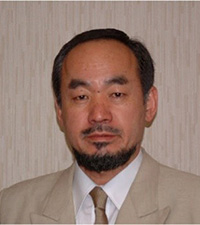
Prof. Makoto Kageto
Nihon Fukushi University, Nagoya, Japan
Online Experiential Learning Efforts at Nihon Fukushi University - Discussion on Key Factors in Light of Online Interactive Outcomes
This workshop focuses on online experiential learning. We will introduce our efforts to provide authentic experiences online, mainly focusing on international collaboration. Reflection on such experiences, we would like to discuss and look at the future of online experiential learning. It will also be appreciated if you share your experiences related to this topic.

